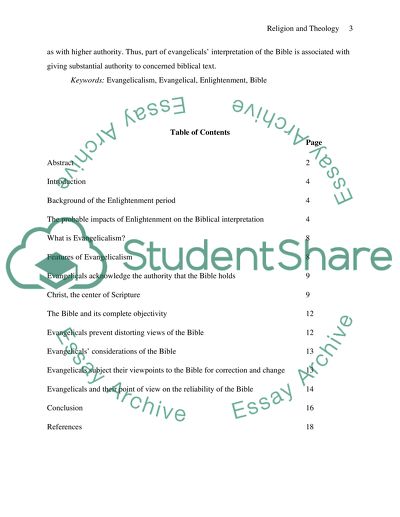Cite this document
(“The age of reason and Evangelical Biblical Interpretation Essay”, n.d.)
Retrieved from https://studentshare.org/religion-and-theology/1463216-1-investigate-and-critique-the-developments-that-have-taken-place-since-the-enlightenment-in-the-way-evangelicalism-interprets
Retrieved from https://studentshare.org/religion-and-theology/1463216-1-investigate-and-critique-the-developments-that-have-taken-place-since-the-enlightenment-in-the-way-evangelicalism-interprets
(The Age of Reason and Evangelical Biblical Interpretation Essay)
https://studentshare.org/religion-and-theology/1463216-1-investigate-and-critique-the-developments-that-have-taken-place-since-the-enlightenment-in-the-way-evangelicalism-interprets.
https://studentshare.org/religion-and-theology/1463216-1-investigate-and-critique-the-developments-that-have-taken-place-since-the-enlightenment-in-the-way-evangelicalism-interprets.
“The Age of Reason and Evangelical Biblical Interpretation Essay”, n.d. https://studentshare.org/religion-and-theology/1463216-1-investigate-and-critique-the-developments-that-have-taken-place-since-the-enlightenment-in-the-way-evangelicalism-interprets.


